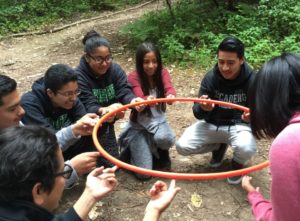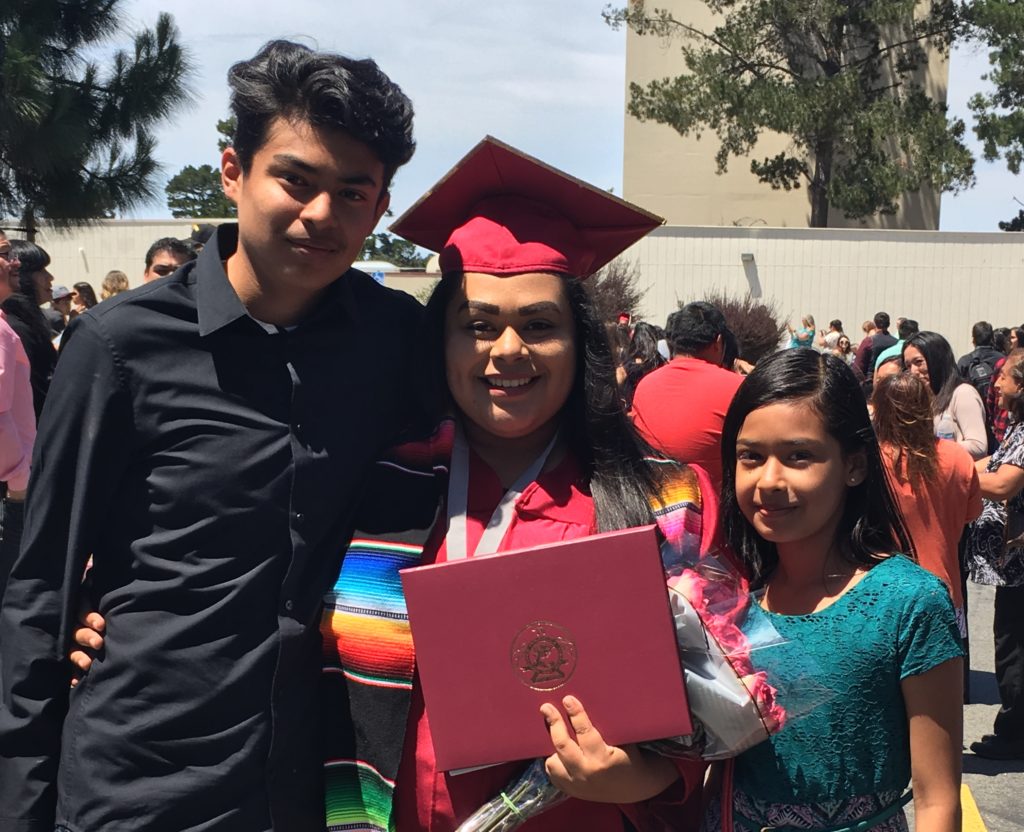In 2012, President Obama issued an Executive Order creating a program called Deferred Action for Childhood Arrivals (DACA). Many young men and women that arrived in the United States as young children found in this program the comfort to come out of the shadows, become civically engaged, and live productive lives by pursuing their education and accessing better jobs. At Puente, we were able to respond immediately by contacting every youth we knew who was potentially eligible and provide assistance to complete their DACA applications through pro-bono attorneys. (See Puente’s story: Puente helps bring youth into the light.)
Later in 2014, through a new Executive Order, the President authorized a program for parents of U.S. Citizens and Permanent Residents (DAPA), as well as an extension of DACA to benefit even a wider range of youth. Almost immediately, the new programs were put on hold by a District Court in Texas. At Puente, we were assisting many community members, including Susana Arias (pictured below), with applications and had to put those on hold, too. (See Puente’s story: Trapped: local immigrants hope for legal relief, with Puente’s help.)

Speaking with Susana Arias yesterday about the Supreme Court decision, she said:
“I feel sad because I was expecting them to approve it. I feel impotent because many people have done a lot for this to happen and with this decision it is like going back to the beginning. Mostly I feel that it is better to have a TIE than aNO. We will keep fighting for this to happen. We will keep trying our best to prove that what we are asking for is worthy. Hope dies last.”
Yesterday the U.S. Supreme Court ruled 4-4 on the extension of DACA and DAPA. This tie vote means the lower court’s ruling to block the program stands.
The ripple effects for families on the South Coast
Many families and advocacy groups in the country have been waiting for the Supreme Court to issue a decision on this case. Their ruling yesterday reveals unfortunate news for many in our community and millions of other families around the country. On the South Coast, it directly impacts 120 parents that Puente had already identified and worked with to collect the necessary documents and save for the anticipated application fee. They are mostly farmworkers men and women who are the backbone of our agriculture industry.
For families here and around the country, this means they will not be eligible for protection from deportation or for permits that will allow them to work legally in the U.S.

“I feel disappointed because we were waiting for this opportunity to work legally and stop being seen as a burden to the United States, which we are not. We pay our taxes and we want to work legally. I came here in 2001 seeking a better future for my family. The economy in Guanajuato was very bad,” says Lucia Herrera, mother of 3, English as a Second Language Student, Early Childhood Educator in training. (Her name has been changed.)
President Obama called the decision “heartbreaking for the millions of immigrants who have made their lives here.”
Just yesterday, a local youth attending college to become a veterinarian was denied an internship with a vet in Half Moon Bay because of her legal status. She was counting on the Supreme Court to rule in favor of her having a work permit. She has been in the U.S. for many years, is a graduate of Pescadero High School, and is pursuing higher education. She has done her part to be involved in her community. Today her future is unknown.
We want to clarify to our friends and current DACA holders that the program authorized in 2012 is still in effect and yesterday’s court decision does not impact that program. We have seen the benefits of employment authorization in the lives of our young people and we will continue to advocate for the families that rely on programs such as this to live without fear. (See Puente’s story:Three-year milestone finds DACA youth thriving at school and work.)
We are devastated to know our neighbors and friends will remain in the shadows. We pledge to do whatever we can to make sure that every person that lives in our community has the opportunity to live up to their highest hopes and dreams.
Rita Mancera
Executive Director, PUENTE
Puente is hosting a Law Night on Tuesday, June 28, at 7:00 pm, in the multipurpose room of Pescadero Elementary. More information about the implications of the Supreme Court decision will be provided there. Other partner organizations will also address employment rights and landlord-tenants’ rights. Please join us!
If you cannot make it, please pass the following information on to your friends and families:
- Avoid working with notarios. You need an attorney or an approved immigration representative to help you navigate the immigration system in the U.S.
- Continue maintaining a clean record and stay involved in your community
- If you have never seen an attorney, seek one or an organization that provides pro-bono or low-cost immigration services to see if you qualify for any other immigration benefits






